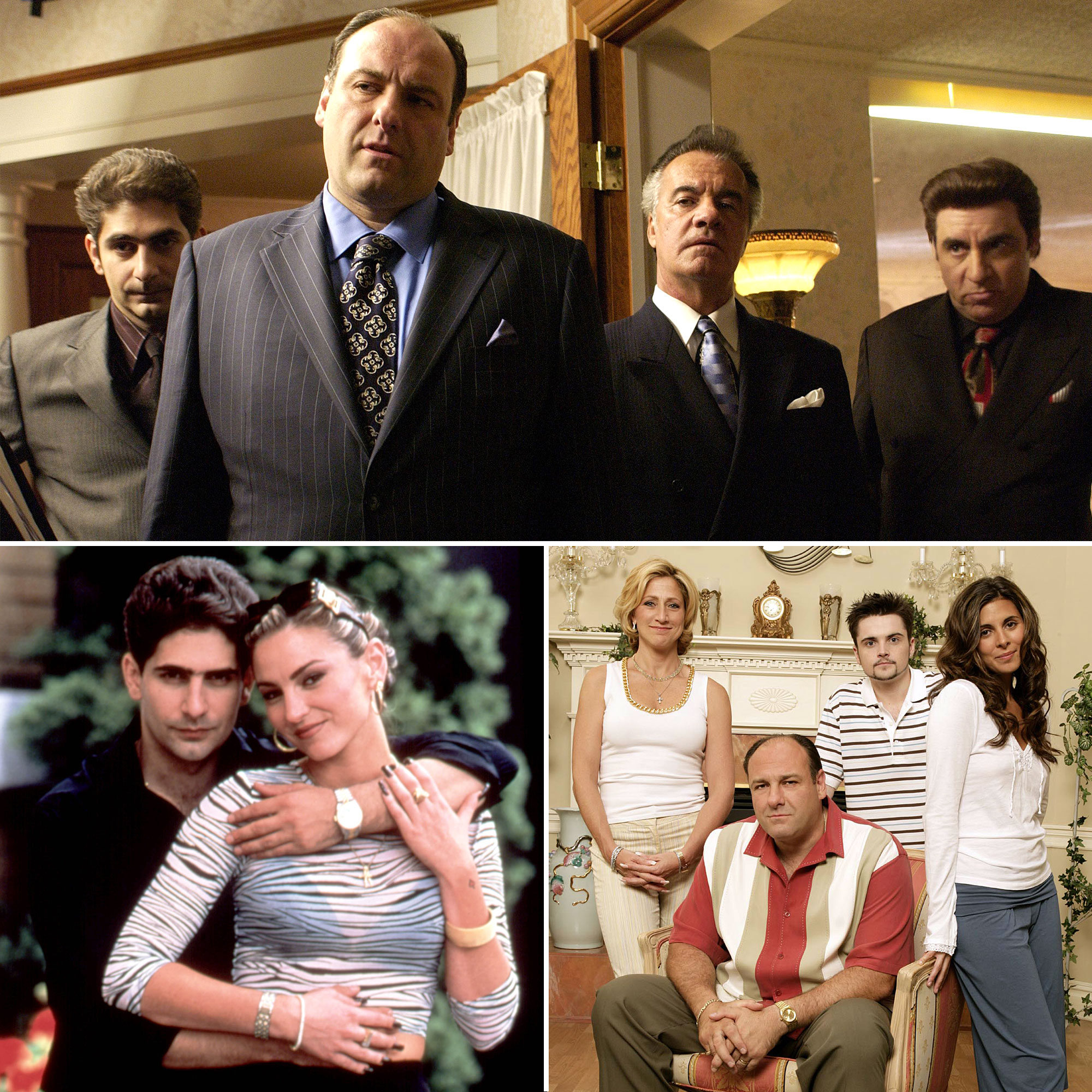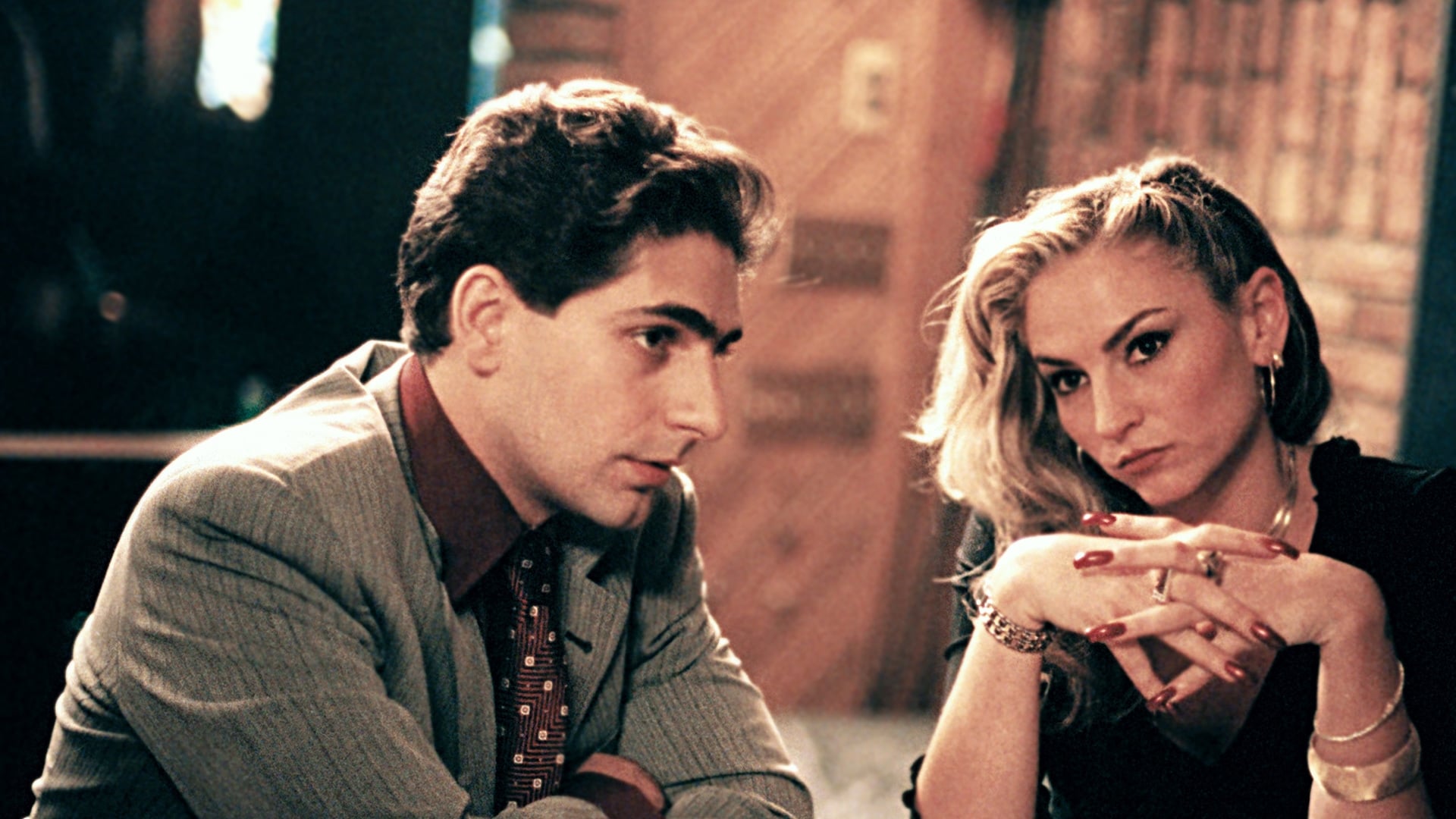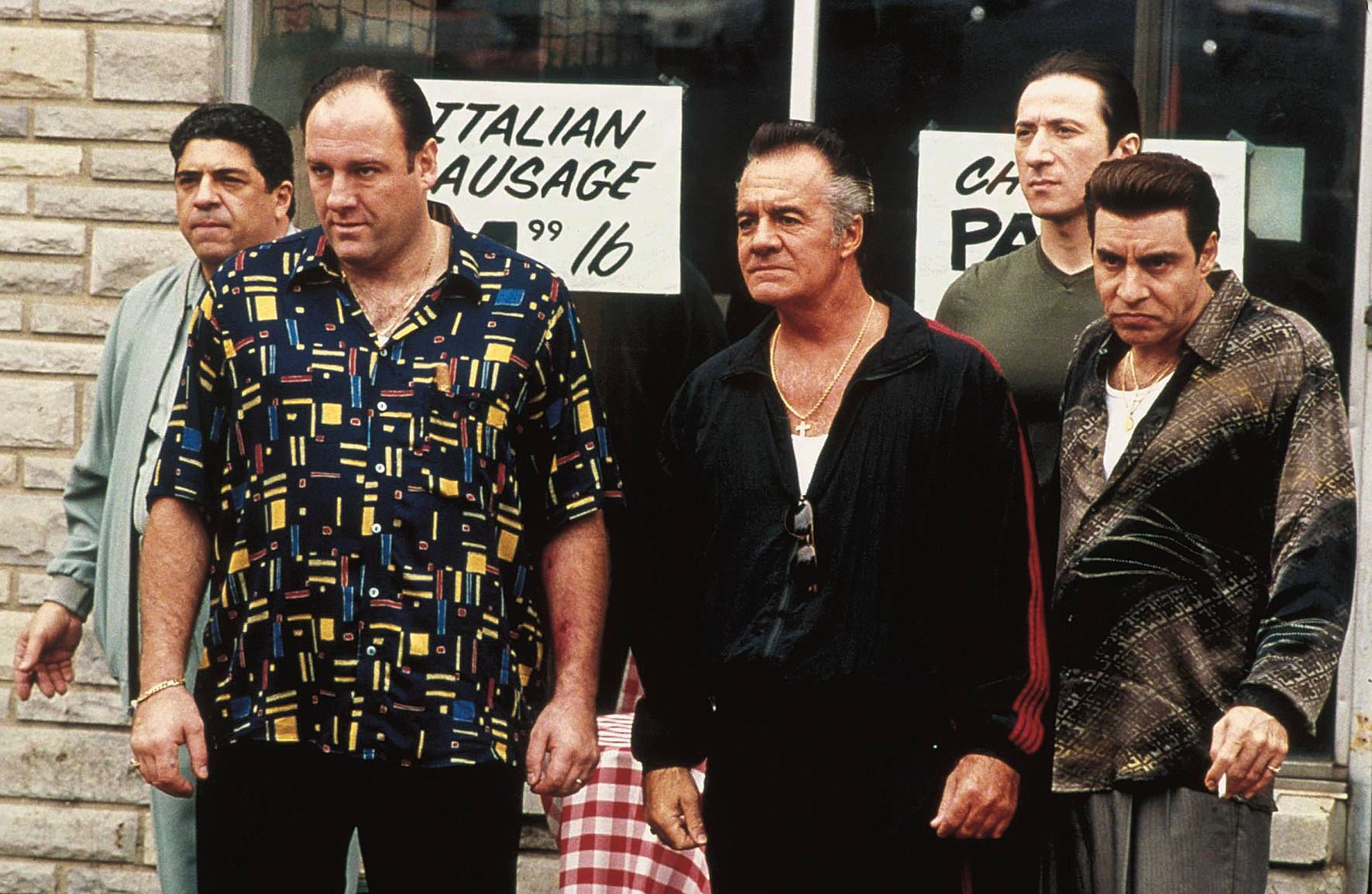For a quarter of a century, one television show has held a special place in the hearts and minds of people who enjoy a good story about power and family. This series, a true original, brought us into the often hidden lives of a group of individuals tied to the world of organized crime, showing us their struggles and triumphs in a way that felt incredibly real. It gave us a fresh perspective on what it means to lead a double life, balancing the demands of a dangerous profession with the everyday concerns of home and loved ones. You know, it really changed how we thought about television itself.
This program, created by David Chase, became an instant classic, something critics and regular viewers both agreed was a work of art. It was known for putting together things that seemed to clash, like the brutal reality of a crime operation with the very ordinary, sometimes even funny, moments of a suburban household. So, it offered a pretty unique look at what happens when a person tries to manage both a demanding, unlawful business and the usual ups and downs of being a parent and a partner. It kept folks glued to their screens, wondering what would happen next, and it is still talked about to this day.
The story centers on a New Jersey mob figure, a man who finds himself dealing with a lot of personal and professional challenges. We see him grappling with moments of intense worry, something you might not expect from someone in his position. This show, starring James Gandolfini, Edie Falco, Michael Imperioli, and Steven Van Zandt, truly brought these characters to life, making them feel like people you might actually know. It’s a show that, honestly, just keeps giving, even after all these years.
Table of Contents
- A Look at the Man Behind the Boss - James Gandolfini's Portrayal
- Who Was Tony Soprano in the Dark World of Organized Crime?
- What Made The Sopranos a Masterpiece in the Dark World of Organized Crime?
- The Minds Behind the Magic - David Chase's Vision
- Beyond Tony - Other Faces in the Dark World of Organized Crime
- How Did The Sopranos Change Television's Dark World of Organized Crime?
- The Ending That Got Everyone Talking - The Sopranos' Dark World of Organized Crime
- Will We See More of The Sopranos' Dark World of Organized Crime?
A Look at the Man Behind the Boss - James Gandolfini's Portrayal
When we talk about the show, it's pretty hard not to think about the person who played the central figure, James Gandolfini. He truly made the character come alive, giving him a presence that was both intimidating and, in a way, quite vulnerable. This performer took on the part of a New Jersey crime figure, a man who had to manage the tricky situations of his illegal business while also dealing with very personal struggles. He was, to put it simply, remarkable in the role, bringing a depth to the character that few could have managed. Really, it was a performance that sticks with you.
The character Gandolfini brought to life was a man who, despite his tough exterior and his position in a dangerous line of work, suffered from what the show called "panic." This element added a whole different layer to the story, showing a person who, for all his outward strength, had an inner struggle that made him relatable in an unexpected way. It was this portrayal of a powerful individual battling his own mind that made the character, and by extension, the show, so compelling. You know, it was a very fresh take on the mob boss idea.
His ability to switch between being a feared leader and a troubled individual trying to hold his family together was a big reason why the show resonated with so many. He was a person trying to be a decent family man, which, as you can imagine, was a huge challenge given his "professional" life. This constant push and pull between his two worlds made for some truly memorable moments on screen. It was, basically, a masterclass in acting, making a complex person feel very real.
Who Was Tony Soprano in the Dark World of Organized Crime?
The central figure of this American crime drama television series was, of course, Tony Soprano. He was presented as a New Jersey mafia figure, someone with significant power and influence within his particular circle. However, the story didn't just show his actions as a crime boss; it also explored his inner thoughts and feelings, especially his struggles with anxiety. This approach gave viewers a much more rounded picture of a person living in the dark world of organized crime. So, it was not just about the typical gangster stuff.
Tony's life was a constant balancing act. On one side, he had the demands of his illegal operations, which often involved difficult decisions and dangerous situations. On the other side, he had his family, his wife, and his children, and he genuinely tried to be a good husband and father. This constant tension between his two roles was a key part of the show's appeal, making him a figure of both fear and, at times, pity. He was, in a way, a very human portrayal of a mob leader, which was pretty unusual for television at the time.
The show made it clear that even someone in his position faced ordinary personal problems, like arguments with his spouse or worries about his children's futures. These elements, combined with the very real dangers of his work, painted a picture of a life that was far from simple. It showed that even in the dark world of organized crime, people have everyday concerns, and that, you know, was a revelation for many viewers. It really made you think about the person, not just the role.
What Made The Sopranos a Masterpiece in the Dark World of Organized Crime?
Many people, including those who write about television and those who just enjoy watching it, have called The Sopranos a truly great piece of work. It was recognized for its special way of putting together things that seemed like they didn't belong together. Imagine the harsh reality of a criminal enterprise placed right next to the mundane, sometimes even funny, moments of family life. This unusual blend was a big part of its appeal, making it stand out from other shows. Basically, it offered a fresh perspective on a familiar subject.
The series was an American crime drama, but it went far beyond what people expected from that kind of show. It wasn't just about gunfights and illegal activities; it was about the people involved, their thoughts, their fears, and their relationships. This focus on the human side of things, even within the dark world of organized crime, is what set it apart and made it so influential. It really pushed the boundaries of what television could do, and it kept audiences absolutely captivated. It was, in some respects, a trailblazer.
The show's ability to explore deep human feelings and complex moral questions, all while telling a gripping story about a crime family, made it a show that people talked about for years. It wasn't afraid to show the ugliness, but also the occasional tenderness, that existed within its characters. This willingness to explore all sides of human experience, even in a setting that was typically seen as black and white, contributed to its lasting impact. It's almost like it invited you to think more deeply about what you were seeing.
The Minds Behind the Magic - David Chase's Vision
The show was brought to life by David Chase, who is credited with creating this remarkable television series. His vision was to tell a story that was more than just a typical mob tale. He wanted to look at the inner workings of a person who happened to be a mob boss, exploring his personal struggles alongside his professional ones. This approach was pretty groundbreaking at the time, offering something new to viewers. He had a very clear idea of what he wanted to achieve.
Chase's influence is seen throughout the series, from the way the characters speak to the often unexpected twists in the plot. He crafted a narrative that felt authentic, even when dealing with extraordinary circumstances. The show's unique tone, which could shift from intense drama to dark humor in a moment, was a direct result of his creative direction. It was, frankly, a very distinct style that made the show unforgettable. He really understood how to make a story resonate with people.
The creator's decision to focus on the psychological aspects of the main character, especially his panic, was a key element that made the show so compelling. It showed that even powerful figures can have vulnerabilities, making them more human and, in a way, more terrifying. This kind of storytelling, focusing on the mind of a person in the dark world of organized crime, changed how many people viewed television drama. It's almost like he invited us into the character's head, which was a pretty intense experience.
Beyond Tony - Other Faces in the Dark World of Organized Crime
While the show definitely focused on Tony Soprano, a big part of its strength came from the people around him. The cast, including Edie Falco, Michael Imperioli, and Steven Van Zandt, brought their characters to life in ways that made them just as memorable as the main figure. Edie Falco, for example, played Tony's wife, a person who had to deal with the realities of her husband's life and the impact it had on their children. Her performance was, you know, incredibly strong and added so much to the family dynamic.
Michael Imperioli played a younger member of the crew, someone trying to find his place in the family business while also dealing with his own personal issues. His character's journey was often a turbulent one, full of ups and downs, which really added another layer to the overall story. He brought a kind of raw energy to the screen, which was pretty important for the show's overall feel. Basically, his character showed the challenges of growing up in that specific environment.
Then there was Steven Van Zandt, who played one of Tony's closest associates. His character was a loyal friend and a voice of reason, often providing a counterpoint to Tony's more impulsive decisions. The chemistry among these performers was undeniable, making their interactions feel very real and believable. They all contributed to building a complete picture of life within the dark world of organized crime, showing that it wasn't just about one person. It was, in fact, about a whole group of interconnected lives.
How Did The Sopranos Change Television's Dark World of Organized Crime?
The Sopranos is widely recognized for being one of the most talked-about programs ever shown on HBO. This series, which focused on a mobster's life, was a true pioneer for what people now call "prestige television." Before this show, many dramas followed a more predictable path, but The Sopranos broke away from those traditions, offering something much more complex and morally ambiguous. It really set a new standard for what television could be, and that, you know, was a big deal.
It kept people absolutely gripped, week after week, making them think and talk about what they had seen. The show's willingness to explore uncomfortable truths, to show characters who were both good and bad, and to leave some questions unanswered, was a fresh approach. It moved away from simple heroes and villains, presenting a world where right and wrong were often blurred. This kind of storytelling had a huge impact on later shows, influencing how stories are told even today. It was, basically, a complete shift in how people approached TV writing.
The series also showed that audiences were ready for more sophisticated narratives, ones that didn't always offer easy answers or happy endings. It proved that a show could be successful by challenging viewers, rather than just entertaining them. This change in perspective helped pave the way for many of the high-quality dramas we see today, making it a true landmark in the history of television. It truly altered the landscape for the dark world of organized crime stories, making them more about the people than just the action.
The Ending That Got Everyone Talking - The Sopranos' Dark World of Organized Crime
When The Sopranos finally came to a close, it left a huge number of viewers wondering exactly what happened to Tony Soprano and his family. The final moments of the show were, to put it mildly, quite controversial. People debated it endlessly, trying to figure out the meaning behind the last scene and the fate of the main character. This ending, which happened some 15 years ago, still sparks conversations and arguments among fans. It was, basically, a moment that truly divided opinions.
The way the series concluded was unexpected for many, leaving a lot open to interpretation rather than providing a clear resolution. This decision by the creators was a bold one, and it certainly achieved its goal of keeping people talking about the show long after it was over. It challenged the audience to think for themselves and to come to their own conclusions about the characters they had followed for so long. You know, it really made you ponder what it all meant.
The impact of this particular ending highlights how deeply connected people were to the characters and their story. The fact that, years later, people are still discussing what those final moments signified speaks volumes about the show's lasting power. It wasn't just a simple wrap-up; it was a statement, a final piece of storytelling that fit the show's overall style of challenging expectations. It was, in a way, a perfect capstone to a series that always kept you guessing about the dark world of organized crime.
Will We See More of The Sopranos' Dark World of Organized Crime?
After the show finished its run, and especially following the release of the film "Many Saints of Newark," questions started to come up about whether HBO might consider bringing more stories from this particular universe to the screen. People are always curious if there's more to tell about these characters and the unique setting they inhabit. The interest in revisiting this world shows just how much impact the original series had on its audience. So, the desire for more is definitely still there.
The film provided a look at some of the earlier events and characters connected to the main story, giving fans a taste of what a return to this setting might be like. It naturally led to discussions about potential spin-offs, prequels, or even sequels that could further explore the lives of the people in the dark world of organized crime. The creators have a rich tapestry of characters and situations to draw from, should they choose to expand on the original narrative. It's almost like the story has more chapters waiting to be written.
For now, fans can still experience the original series, which is a complete story in itself. They can stream season 1 episodes online and even find extra materials like interviews with the cast and crew, previews of upcoming episodes, and guides that go into detail about each installment. This allows people to reconnect with the characters and celebrate the 25th anniversary of this legendary HBO program. There's also a collaborative community, a wiki, where people work together to keep track of everything related to the show, including characters, episodes, events, and locations. It's a very active place for fans to share their passion for the dark world of organized crime as portrayed in the show.
Related Resources:



Detail Author:
- Name : Prof. Diamond Leuschke MD
- Username : nathanial.abbott
- Email : tkuhlman@gmail.com
- Birthdate : 2005-10-18
- Address : 3523 Bogan Groves Suite 703 Port Theaside, AR 20713
- Phone : 1-385-475-2506
- Company : Windler, Medhurst and Purdy
- Job : Library Worker
- Bio : Aut soluta quam quisquam nostrum. Aut magnam possimus sunt laborum dolorum iste. Voluptatem iure commodi ducimus. Rerum est deserunt nostrum impedit tempora voluptas.
Socials
twitter:
- url : https://twitter.com/bart.collins
- username : bart.collins
- bio : Alias ea eligendi et sapiente quae ullam. Omnis ratione nulla rerum et dolor. Ipsum reprehenderit itaque quo voluptatem autem dolor.
- followers : 3445
- following : 2195
linkedin:
- url : https://linkedin.com/in/bcollins
- username : bcollins
- bio : Rerum consequatur dolores et.
- followers : 2144
- following : 2350
facebook:
- url : https://facebook.com/bcollins
- username : bcollins
- bio : Quidem dolor molestiae nihil magni. Ullam ut pariatur cumque voluptas.
- followers : 4680
- following : 2650
instagram:
- url : https://instagram.com/collinsb
- username : collinsb
- bio : Qui ad et iusto omnis. Et rerum eos id aut non rerum. Quia ut omnis suscipit quo rerum et autem.
- followers : 356
- following : 1207
tiktok:
- url : https://tiktok.com/@bcollins
- username : bcollins
- bio : Qui cum et sint debitis. Odit voluptas odit aut consequatur qui itaque officia.
- followers : 273
- following : 428